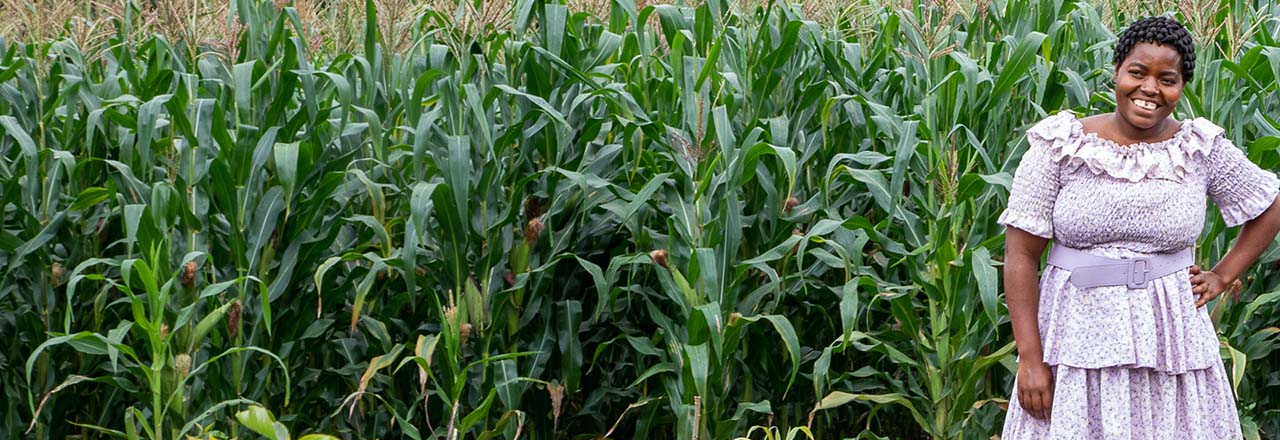

Strengthening Food Security and Finances in Tanzania
The Mbeya region in Tanzania boasts stunning scenery, encompassing mountains, woodlands, valleys and productive farmland.
It is also the home to Seva Kevi, a 29-year-old mother of two children. She lives in Horongo village where she is a jack of all trades—she farms and sells her own products in the local market, she recently built additional rooms onto her home that she is leasing to earn extra income, she owns and runs a beauty salon, and she is the chairperson of her community’s savings group.
But Seva’s life was not always so prosperous.
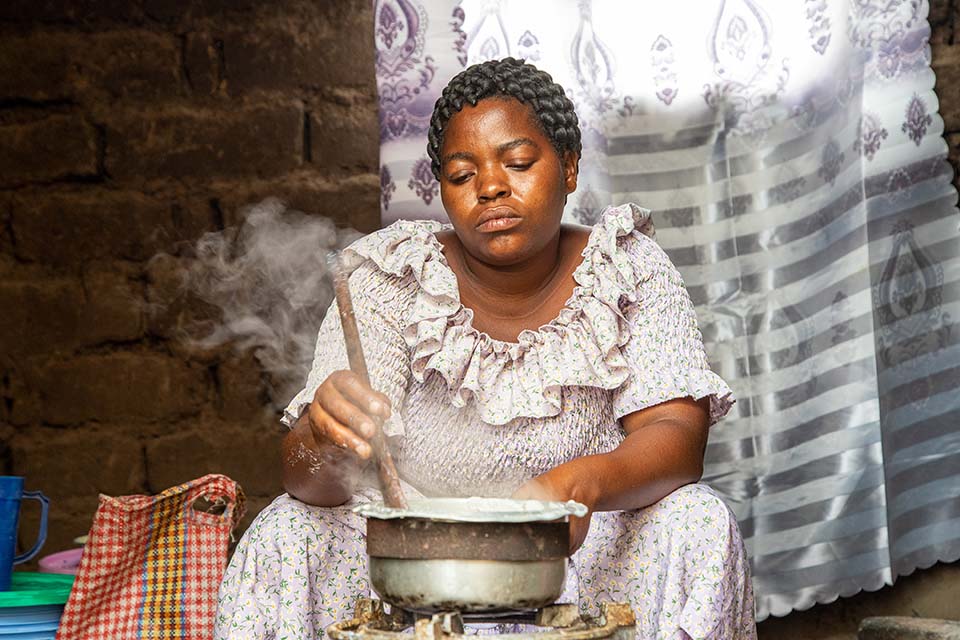
Seva Kevi, a mother of two, prepares porridge for her children. She is the chairperson of her community’s savings group in Horongo village, Tanzania.
Photo by Carlos Barrio/CRS
“I have a women's salon, and I was encountering many challenges on how to properly run it. I used to lose a lot of money because I didn't have that knowledge on how to keep records and track my spending and income. But through the entrepreneurship training that was provided by CRS, now I have a capability to manage and keep records. It makes me save my money and spend my money wisely,” Seva says.
Since partnering with CRS, Seva has learned an array of skills that have proven beneficial, not just for her family but also for her community.
"With CRS, I learned coffee farming—how to plant coffee, harvest it, process it and market it. I also learned about entrepreneurship. Now, we're learning about corn and beans, and I'm currently enrolled in a nutrition program. I also learned about gender sensitivity.”
Empowering Youth for Prosperity
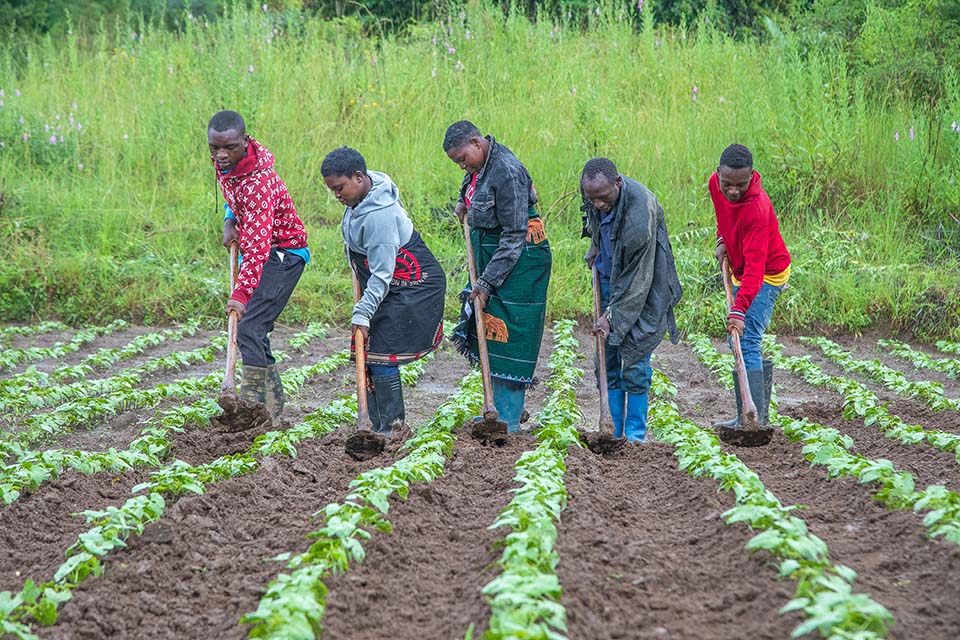
Community members working at the demonstration plot in Horongo village, Tanzania, where young people learn farming techniques.
Photo by Carlos Barrio/CRS
To date, 545 people (296 women and 249) have benefitted from increased agricultural productivity, reduced crop losses, financial education, and better gender relations.
By partnering with CRS, young people like Seva have a chance to realize their full potential. They're not only improving their family’s food security by making better farming and financial choices, they’re also increasing their income streams to bring about lasting change.
Seva shares details about how her life has been transformed through entrepreneurial education and savings, propelling her directly toward financial stability and prosperity.
“I've managed to connect water here in my house and then also I managed to complete two rooms. Now I rent them, and I get money. Also, on top of all of that, I manage to take my kid to a private school which is more advanced.”
Transformative Leadership
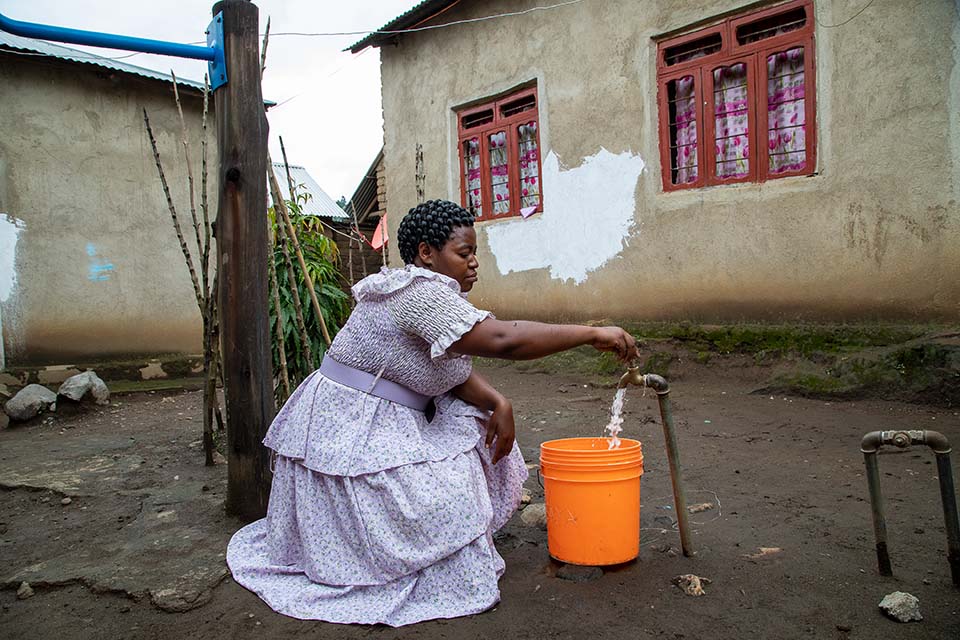
Seva Kevi fetches water from the water source she was able to install at her house with a loan from her savings group started as part of a CRS project. Seva is the chairperson of her community’s savings group in Horongo village, Tanzania.
Photo by Carlos Barrio/CRS
Seva’s role as the chairperson of her community’s savings group, composed of 26 members, not only ensures financial stability but also encourages entrepreneurial thinking among members, ultimately benefitting and uplifting the entire community. Seva’s story exemplifies how individuals, when provided with opportunities, can become personally successful as well as support positive change in their communities.
As the chairperson of her savings group, Seva says, “I always make sure that what we agreed upon is what we do, and that each member does what we agreed upon. So if you're about to go to the farm, we all go. And if there's work to be done, I make sure that we divide the work equally and that everybody does what they need to do. And I always make sure that if someone doesn't do it, there's a penalty that we agreed on as a group.”
Sustainable Growth and Gender Equality
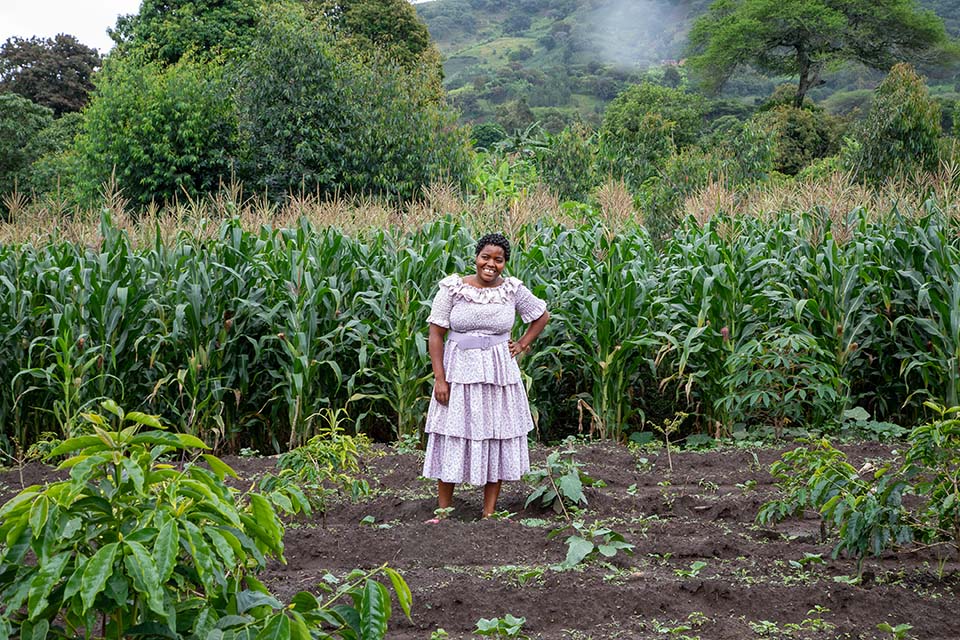
Seva Kevi at one her farm plots where she grows corn using agricultural techniques she learned as part of a CRS project. Seva is also the chairperson of her community’s savings group in Horongo village, Tanzania.
Photo by Carlos Barrio/CRS
Aimed at improving farming techniques that are transforming households, this is all part of CRS’ long-term farm management efforts in Tanzania. These activities empower both women and men with farming knowledge and financial literacy. The project also provides gender training, helping participants and the broader community to understand and consider the role of gender equality and equity in household decision-making.
“Before, we were not so aware of gender issues,” says Seva. “Before, only men were involved in coffee production. But now that we are aware of gender issues. We realize that coffee planting is for everyone, not just for men. And now you can see there is a change in terms of perception. As women, we are now engaging in more activities. For example, me. My husband is working away from here. He's on a trip to another area. In the past, I used to expect him to do everything, like harvesting coffee and everything. But now I don't want to—I don't have to wait for him to come back,” says Seva, “I go and do it directly.”
GROWING HOPE PROJECT-TANZANIA
The Enhanced Youth and Private Sector Engagement in Sustainable Agricultural Production, Household Food Security, and Livelihood Improvements project is a four-year initiative funded by Growing Hope Globally and private donors. Implemented by Catholic Relief Services, the project’s goal is to improve household food security and livelihoods for young people ages 18 to 35 within the area of the Mbeya District Council in Tanzania. The objectives of the project are to improve productivity for corn and bean value chains, reduce post-harvest losses, ensure young people increase their income, and improve gender relations at the household level. Through collaboration with local government authorities and the private sector—and by applying an approach that engages young people with their families, communities and governments so they can reach their full potential—the project has reached 296 women and 249 men.

